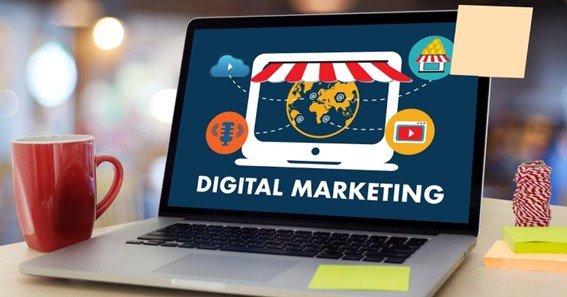Digital marketing is crucial in today’s business world. Every company, big or small, needs a strong online presence to remain competitive. This guide will help you understand what digital marketing is, why it matters, and how to succeed with effective strategies. By the end of this article, you’ll have valuable tips and tricks to elevate your digital marketing game.
What is Digital Marketing?
Digital marketing refers to promoting products or services using online platforms. These platforms include websites, social media, email, and search engines. It allows businesses to reach a broader audience than traditional marketing methods. With digital marketing, companies can target specific customer groups, track results, and adapt strategies quickly.
Why is Digital Marketing Important?
Digital marketing has become an essential tool for business growth due to several reasons:
- Wider Reach: It allows businesses to connect with potential customers worldwide.
- Cost-Effectiveness: Online advertising often costs less than traditional methods, such as TV or print ads.
- Trackable Results: Tools like Google Analytics enable businesses to measure success accurately.
- Flexibility: Campaigns can be adjusted in real-time based on performance.
Key Strategies for Digital Marketing Success
1. Know Your Audience
Understanding your target audience is the foundation of any successful marketing campaign. To do this:
- Research your audience’s demographics, preferences, and online behavior.
- Use tools like surveys, social media polls, and website analytics.
- Create personalized content that addresses their needs and interests.
2. Leverage Social Media
Social media platforms like Facebook, Instagram, LinkedIn, and Twitter are powerful tools for connecting with your audience. Here’s how to make the most of them:
- Post regular updates, photos, and videos.
- Engage with followers by responding to comments and messages promptly.
- Use social media ads to reach a larger audience.
3. Focus on Quality Content
Content is often called “king” in the world of digital marketing, and for a good reason:
- Write blogs, articles, and social media posts that provide value.
- Ensure content is engaging, easy to read about their team, and shareable.
- Use visuals, infographics, and videos to make your content more appealing.
4. Optimize for Search Engines (SEO)
Search engine optimization (SEO) helps your website rank higher in search results, driving more organic traffic. To improve your SEO:
- Use relevant keywords in your website content.
- Ensure your website is fast, mobile-friendly, and easy to navigate.
- Build backlinks by collaborating with other websites or influencers.
5. Use Email Marketing Effectively
Email marketing remains one of the most cost-effective methods to engage customers. To succeed:
- Build an email list by offering free resources, discounts, or newsletters.
- Personalize your emails to make them relevant to the recipient.
- Include clear calls-to-action (CTAs) to encourage responses.
Challenges in Digital Marketing
Digital marketing is not without its challenges. Some of the common issues businesses face include:
- Constantly Changing Trends: The digital landscape evolves quickly, requiring businesses to adapt.
- High Competition: Many businesses compete for the same audience’s attention.
- Measuring ROI: Determining the effectiveness of campaigns can be tricky.
Tips to Overcome Challenges
- Stay Updated: Follow industry blogs and news to keep up with trends.
- Learn from Competitors: Analyze successful competitors and adopt proven strategies.
- Invest in Training: Take online courses or attend webinars to enhance your skills.
- Use the Right Tools: Leverage tools that streamline tasks, such as social media scheduling and SEO optimization.
- Prioritize Quality: Focus on creating high-quality content and campaigns rather than overwhelming quantity.
Conclusion
Digital marketing is no longer optional; it’s a necessity for businesses that want to grow and thrive. By understanding your audience, leveraging the right tools, and implementing proven strategies, you can achieve outstanding results.










